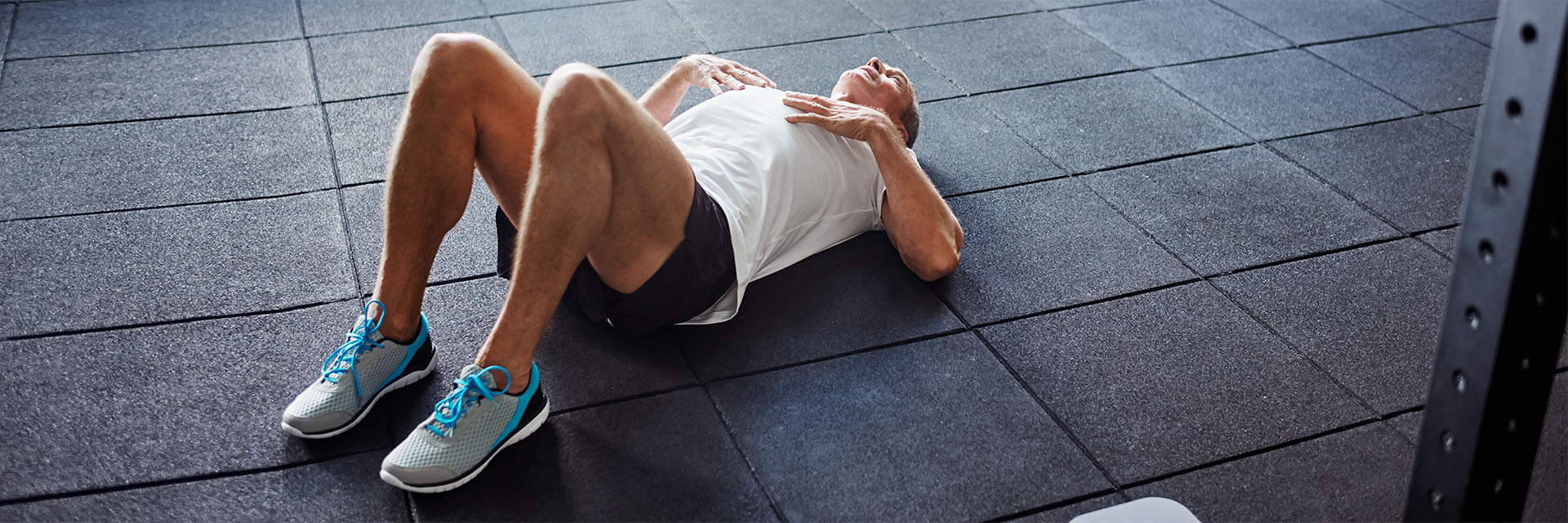When you're juggling work, family, and a fitness routine, you're bound to hit a wall now and then. Maybe you didn’t sleep well. Maybe your to-do list feels never-ending. Or maybe you’re just worn out from the week’s workouts. So, what should you do — power through your planned exercise or take a rest day?
It’s a common dilemma. And the answer isn’t always straightforward.
“I tell people that something is always better than nothing,” says Aubrey Whitehorn, a trainer and fitness manager at a Texas Health Fitness Center Dallas. “But it’s important to understand the difference between pushing past mental resistance and ignoring what your body really needs.”
Mental vs. Physical Fatigue: Can You Tell the Difference?
Not all tiredness is created equal. Sometimes, the issue is mental fatigue; you’ve had a long day and feel like zoning out on the couch instead of lacing up your sneakers. Other times, your body is physically worn down and needs time to recover.
So how do you know the difference?
Ask yourself:
- Am I physically sore or feeling unusually weak?
- Has my sleep been off for more than a night or two?
- Am I feeling run-down or coming down with something?
- Have I been exercising hard all week without enough rest?
If the answer to any of these is “yes,” rest may be more productive than pushing through.
But if you're simply not in the mood to move, getting your body in motion, even gently, can help lift your energy and your mindset.
Even if you don’t perform at your best, you’re still making a positive step toward your health,” Whitehorn says.
Try some of these lower-intensity activities:
- Take a 30-minute walk after work.
- Stretch or do gentle yoga at home.
- Walk your dog (or offer to walk a neighbor’s!).
- Do light chores around the house.
When You Should Skip the Gym
However, there are times when rest is non-negotiable:
- You’re feeling rundown or getting sick: Rest helps your body fight infection and recover faster.
- Your muscles feel deeply fatigued or sore: Overtraining can lead to injury. Muscles, tendons, and joints need downtime to recover and grow stronger.
- Mood and motivation remain low over several days: Chronic lethargy or sleep issues may signal it’s time to scale back and let your body repair.
Whitehorn emphasizes, “Our muscles and joints tend to progress when we are at rest. Giving the body time to recover not only helps it regain energy but also helps prevent injuries and adapt to stress”.
What Happens When You Push Too Hard?
We get it — taking a day off can feel like you’re losing momentum, especially when you’re trying to stay consistent. But pushing through when your body is telling you to rest can actually do more harm than good.
“If you regularly ignore signs of physical fatigue and train without proper recovery, you could put yourself at risk of overtraining,” Whitehorn says.
Overtraining syndrome is a real concern. It can leave you feeling run-down, unmotivated and more vulnerable to injury or illness, ultimately slowing your progress rather than helping it.
Symptoms of overtraining can include:
- Chronic fatigue or sluggishness
- Trouble sleeping
- Mood changes or irritability
- A drop in performance
- Elevated resting heart rate
- Increased risk of illness or injury
Skipping the gym for one day might feel frustrating in the moment, but giving your body time to recover can help you come back stronger and avoid setbacks that could keep you out longer.
A Smarter Way to Stay Consistent
You might worry that skipping a workout means you’ll fall out of routine. But consistency doesn’t mean pushing yourself to the limit every day; it means showing up in a way that’s sustainable.
Some days, that might look like a 45-minute workout. Other days, it might mean a 10-minute walk or simply giving yourself permission to rest.
Try building flexibility into your routine. Alternate between higher and lower intensity workouts. Schedule rest days with the same intention as workout days. And above all, listen to your body.
The Bottom Line
To answer the initial question: yes, it’s OK to work out when you’re a little tired. In fact, gentle movement can help boost your energy, improve your mood, and keep your momentum going. But if your body is asking for rest, don’t ignore it. Giving yourself a break may be the healthiest thing you can do.
You don’t have to choose between progress and self-care — both matter. And when you strike the right balance, your body will thank you.
Need a bit more guidance? Texas Health Fitness Centers powered by FX Well offer every new member a complimentary fitness assessment, movement screen, and personal training session to help you get started. In addition, there are 40+ virtual classes a week, a Digital Fitness App with a new bodyweight and in-gym workout posted daily, a variety of 30, 60, and 90-day custom programs built to help you achieve your goals, in-body body composition testing, and more!

